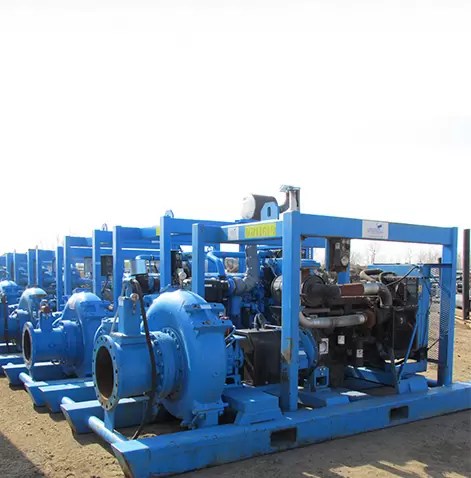Introduction:
Noise pollution is a common problem in industries that use pumps, causing disturbances to workers and nearby residents. However, this can be remedied with the right pump noise control solutions. In this comprehensive guide, we will explore the various techniques for controlling pump noise, including the use of vibration isolation and bellows, and how they can be applied to different types of pumps. We will also touch on similar solutions that can be used for sewage treatment plants.
Vibration Isolation:
One of the most effective ways to reduce pump noise is through vibration isolation. This involves separating the pump from its support structure to prevent the transmission of vibration and noise. There are several types of vibration isolation methods, including springs, elastomeric mounts, and air mounts. Each method has its advantages and disadvantages, and the choice depends on the specific application.
Bellows:

An ‘Expansion Joint’ also known as a ‘Bellow’
Another method for reducing pump noise is the use of bellows at inlets and outlets. Bellows can be used to prevent force transmission into the plumbing, thereby reducing noise levels. Bellows can be made of various materials such as rubber, neoprene, and stainless steel. The choice of material depends on the operating conditions and the type of pump.
Types of Pumps:
Different types of pumps require different noise control solutions. For example, centrifugal pumps generate noise due to their high-speed rotation, while positive displacement pumps generate noise due to the pulsation of fluid. Understanding the noise generation mechanism of the pump is key to choosing the right noise control solution.
Sewage Treatment Plants:
Similar noise control solutions can be used for sewage treatment plants. The pumps used in these plants generate significant noise levels, which can cause disturbance to nearby residents. By implementing the right noise control measures, these noise levels can be significantly reduced, creating a more comfortable environment for everyone.
Conclusion:
Pump noise control solutions are essential for reducing noise pollution in industrial settings. Vibration isolation and the use of bellows are effective techniques that can be used to achieve this goal. By understanding the noise generation mechanism of different types of pumps, it is possible to choose the right noise control solution for each application. Similar noise control measures can also be applied to sewage treatment plants. Contact us at dB Acoustique to learn more about our noise control solutions for pumps and other industrial equipment.


